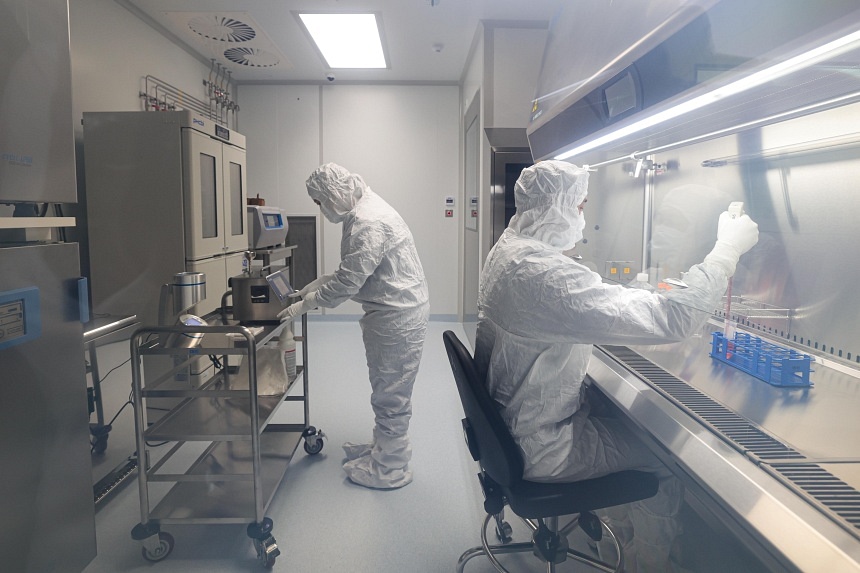SINGAPORE – Patients here who require certain costly cell, tissue and gene therapy products (CTGTPs) will now be eligible for subsidies, starting with one product for blood cancers.
This opens the door to a new range of treatments harnessing cells as living drugs to treat or reverse various health conditions.
The subsidies took effect on Aug 1, according to the Ministry of Health (MOH), which noted that the availability of such treatments varies at healthcare institutions, depending on the clinical conditions commonly managed by the institution and the treatments usually prescribed by the doctors.
Made from human or animal cells or tissues, or man-made genetic material, CTGTPs can be used to diagnose, treat or prevent a variety of conditions.
Several new cell therapy products have been approved by the United States Food and Drug Administration in recent years, with more in the works.
Chimeric antigen receptor (CAR) T-cell therapy, for example, allows cancer patients to recover more quickly without the need for aggressive chemotherapy, and achieve longer-lasting remissions.
Singapore sees about 100 patients each year who need cell and gene therapy treatments, which are usually offered to those who have not responded well to conventional treatments for conditions such as aggressive leukaemia and lymphoma. They include those undergoing clinical trials, where the cost of treatment is paid for.
Singapore citizens are now eligible to get up to 75 per cent of the cost of their treatment subsidised, capped at $150,000, while permanent residents can get up to 22.5 per cent in subsidies, capped at $45,000.
Subsidy levels are determined through household means-testing using monthly per capita household income.
MOH said subsidies will be provided for CTGTPs that are assessed to be “clinically and cost effective, for specific indications, to eligible subsidised patients”.
Currently, the only treatment on the list is tisagenlecleucel, otherwise known by the brand name Kymriah.
It is used to treat relapsed or refractory B-cell acute lymphoblastic leukaemia, as well as relapsed or refractory diffuse large B-cell lymphoma.
A single Kymriah treatment – a type of CAR T-cell therapy where certain blood cells are extracted from a patient, manipulated to target cancer cells and then re-infused into the patient – is reported to cost around US$475,000 (S$620,000) if unsubsidised.
“Given the high costs of CTGTPs, we seek to balance between patient affordability and access to such treatments on the list while ensuring financing is sustainable, so that we continue to support Singaporeans for other important healthcare needs,” MOH said in response to queries from The Straits Times.
“Hence, only CTGTPs that have been assessed to be clinically and cost effective will be included in the list. This also enables us to negotiate for competitive pricing from industry, which benefits patients,” said an MOH spokesman.
He said more CTGTPs will be added to the list over time based on factors such as clinical need, cost and clinical effectiveness, and budget impact.
Setting a cap on subsidies ensures the long-term sustainability of the scheme as manufacturers may set prices higher without it, said Associate Professor Wee Hwee Lin from the National University of Singapore’s Saw Swee Hock School of Public Health.
“The cap will hopefully encourage the manufacturer to price the treatments more in line with what the health system and patients can afford,” said the director of the Centre for Health Intervention and Policy Evaluation Research.
Prof Wee suggested that national health insurance scheme MediShield Life could be expanded to cover CTGTPs.
“The intention of insurance is to provide protection against unexpected large healthcare cost through risk pooling.
“Hence, insurance is the most suited mechanism for financing expensive treatments used by a small number of patients, such as CTGTPs,” she said.
Earlier this year, it was announced that the MediShield Life Council, an 11-member expert panel, was looking into extending MediShield Life coverage to CTGTPs.
Another way to improve access to such innovative treatments for patients here would be to attract more pharmaceutical companies to conduct clinical trials for such treatments in Singapore, said Dr Francesca Lim, head of the SingHealth Duke-NUS Cell Therapy Centre.


